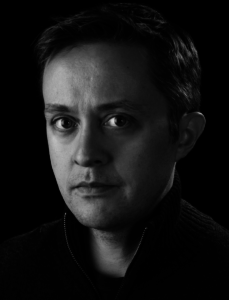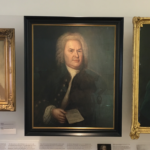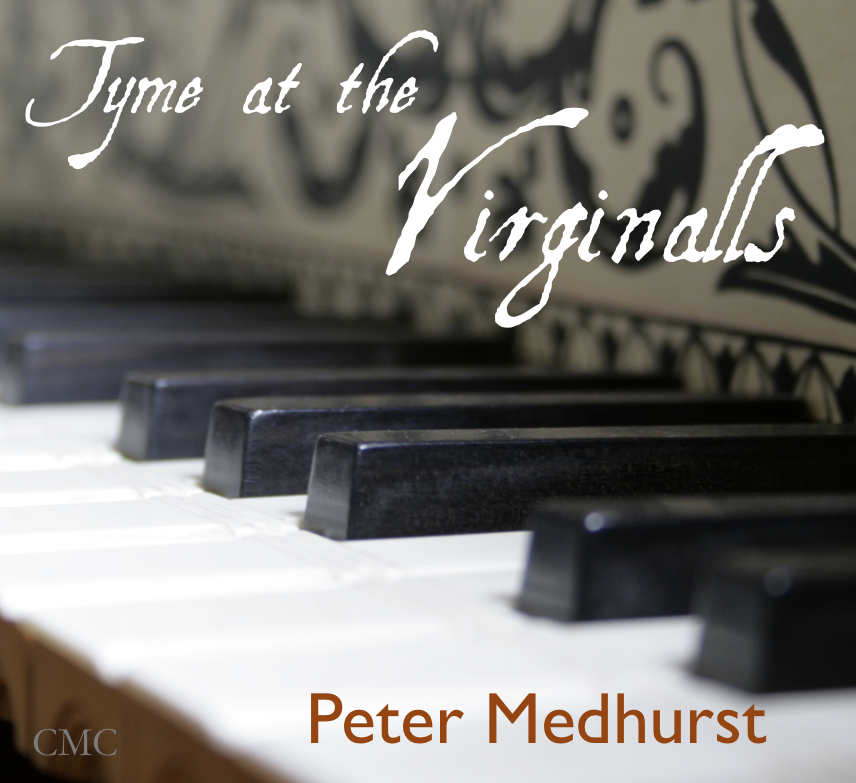The Romantic Period
Music & the Arts 1789-1848

A study day with
Helen Semple – soprano
Linda Howarth – flute
Jeremy Limb – piano
Introduced and presented by Peter Medhurst
Jeremy Limb plays the opening of the second movement of Beethoven’s
Piano Sonata No 32 in C minor Op 111 (1821-2)
The Menuhin Hall, Cobham Road, Stoke d’Abernon, Surrey KT11 3QQ
Monday 28th October 2019 10.30 am – 4.00 pm
Tickets at £38 may be booked on line here, or bought over the phone from
the Menuhin Hall box office 08700 842020
Patrons are advised that a cash bar will be available for drinks. Please bring your own lunch. Patrons may purchase tea and coffee on the day with cash.
Introduction
Romanticism was a trend in the arts that had its first noticeable stirrings in the late 1780s at the time of the French Revolution, but really came into prominence with the turn of the 19th century and, particularly, with the impact on society of the Napoleonic Wars.
 The Romantic period placed a strong emphasis on inspiration, subjectivity, and the importance of the individual. In other words, what the artist felt, thought, and experienced was hugely important to the success of the work that was created – whether this was a poem, a painting, or a piece of music.
The Romantic period placed a strong emphasis on inspiration, subjectivity, and the importance of the individual. In other words, what the artist felt, thought, and experienced was hugely important to the success of the work that was created – whether this was a poem, a painting, or a piece of music.
 Among the various strands that make up Romanticism are:
Among the various strands that make up Romanticism are:
the knock-on effects of the Napoleonic wars,
the subjective elements in the arts,
the influence of nature,
fascination for the Gothick and the supernatural,
as well as wars of independence that led to waves of nationalism across Europe in all countries.
Also, the Romantic period was an extremely lengthy period and a diverse one in the arts, and although the year 1848 – or there abouts – is the usual text book shut-off point of Romanticism, it stretched often way beyond that, and in some areas of the arts reaches through to the start of the First World War in 1914.
In fact in the case of Richard Strauss’s Four last Songs, Romanticism can stretch itself to 1949.
 On this study day, Peter Medhurst explores the Romantic period in music and the arts (c.1789 -1848) by discussing the various aspects that shape its character: the Napoleonic wars, the rise of nationalism, the subjective in Romantic expression, the importance of nature, the supernatural and the Gothic, and the wars of independence. The day is illustrated throughout with images and live examples performed by Peter and his team.
On this study day, Peter Medhurst explores the Romantic period in music and the arts (c.1789 -1848) by discussing the various aspects that shape its character: the Napoleonic wars, the rise of nationalism, the subjective in Romantic expression, the importance of nature, the supernatural and the Gothic, and the wars of independence. The day is illustrated throughout with images and live examples performed by Peter and his team.
Music performed includes
Beethoven – Piano Sonata No. 26 in Eb major Op 81a, Schubert – Gretchen am Spinnrade, Field – Nocturne No 1, Schumann – Frauenliebe und Leben excerpts, Weber – Romanza Siciliana, Chopin – Etude Op 10 No 12 in C minor (The Revolutionary), and Liszt – Hungarian Rhapsody No 5
The performers
 Helen Semple held a Choral Award at Cambridge University before going on to postgraduate performance studies at Trinity College of Music. Operatic roles include both Susanna (Candlelight Opera) and the Countess in Le Nozze di Figaro; Countess Adele in Rossini’s Le Comte Ory, Oscar in Un Ballo in Maschera, Adele (both Guildford Opera), Micaela (Opera Brava), Margarita in Gounod’s Faust, and Pamina, not to mention playing Donna Anna in two versions of Don Giovanni,Mozart’s and Gazzaniga’s, the latter with Bampton Classical Opera.
Helen Semple held a Choral Award at Cambridge University before going on to postgraduate performance studies at Trinity College of Music. Operatic roles include both Susanna (Candlelight Opera) and the Countess in Le Nozze di Figaro; Countess Adele in Rossini’s Le Comte Ory, Oscar in Un Ballo in Maschera, Adele (both Guildford Opera), Micaela (Opera Brava), Margarita in Gounod’s Faust, and Pamina, not to mention playing Donna Anna in two versions of Don Giovanni,Mozart’s and Gazzaniga’s, the latter with Bampton Classical Opera.
 Linda Howarth won a scholarship to study the flute with Clare Southworth at Wells Cathedral School, Somerset at the age of twelve. Following this she went on to become a full time student at Trinity College of Music, London. Linda graduated in 1995 having being awarded the Fellowship. During her time at College, she won – among other prizes – the Albert Cooper competition at the International Flute Festival at Stratford-on-Avon. As well as gaining a reputation as a gifted teacher, Linda holds down a busy recital schedule and performs regularly in the British Isles and abroad. No stranger to the radio, she has given recitals on Classic FM Friday Live, and Radio 3.
Linda Howarth won a scholarship to study the flute with Clare Southworth at Wells Cathedral School, Somerset at the age of twelve. Following this she went on to become a full time student at Trinity College of Music, London. Linda graduated in 1995 having being awarded the Fellowship. During her time at College, she won – among other prizes – the Albert Cooper competition at the International Flute Festival at Stratford-on-Avon. As well as gaining a reputation as a gifted teacher, Linda holds down a busy recital schedule and performs regularly in the British Isles and abroad. No stranger to the radio, she has given recitals on Classic FM Friday Live, and Radio 3.
 Jeremy Limb read music at Queen’s College, Oxford, then studied piano at the Royal College of Music. He has broadcast on BBC Radio 3, given numerous recitals around the country, and won 1st Prize in the 18th Brant National Piano Competition. He now works as a freelance musician in various capacities – soloist, accompanist, sight-reader, repetiteur (including work for English National Opera). He is also a writer and performer of comedy and has had material used on BBC1 by Harry Enfield, has written and performed on ITV2, BBC1, BBC2, BBC3, BBC Radios 1, 2 and 4, and was nominated for the LWT New Comedy Writing Award for his play ‘Play Wisty For Me’ – The Life of Peter Cook.
Jeremy Limb read music at Queen’s College, Oxford, then studied piano at the Royal College of Music. He has broadcast on BBC Radio 3, given numerous recitals around the country, and won 1st Prize in the 18th Brant National Piano Competition. He now works as a freelance musician in various capacities – soloist, accompanist, sight-reader, repetiteur (including work for English National Opera). He is also a writer and performer of comedy and has had material used on BBC1 by Harry Enfield, has written and performed on ITV2, BBC1, BBC2, BBC3, BBC Radios 1, 2 and 4, and was nominated for the LWT New Comedy Writing Award for his play ‘Play Wisty For Me’ – The Life of Peter Cook.
 Peter Medhurst – singer, harpsichordist, organist and lecturer – travels throughout Europe and the British Isles presenting his ideas on music and the arts. He is a well known face to members of the Arts Society and other cultural organisations and each year presents between 80 and 100 lecture-recitals on topics ranging from The Music of Vivaldi and his Relationship to Venice, and The Genius of Beethoven, to Music Inspired by Paintings, and The Music of Russia. Peter also sets aside time to devise and lead tours abroad for small groups of art and music connoisseurs. His particular interests are centred on the music, art and history of Vienna, Salzburg, Berlin, Dresden, Venice, Rome, Madrid, and Naples. Peter trained at the Royal College of Music and at the Mozarteum in Salzburg. He also studied privately with Edgar Evans (voice) and Ruth Dyson (harpsichord).
Peter Medhurst – singer, harpsichordist, organist and lecturer – travels throughout Europe and the British Isles presenting his ideas on music and the arts. He is a well known face to members of the Arts Society and other cultural organisations and each year presents between 80 and 100 lecture-recitals on topics ranging from The Music of Vivaldi and his Relationship to Venice, and The Genius of Beethoven, to Music Inspired by Paintings, and The Music of Russia. Peter also sets aside time to devise and lead tours abroad for small groups of art and music connoisseurs. His particular interests are centred on the music, art and history of Vienna, Salzburg, Berlin, Dresden, Venice, Rome, Madrid, and Naples. Peter trained at the Royal College of Music and at the Mozarteum in Salzburg. He also studied privately with Edgar Evans (voice) and Ruth Dyson (harpsichord).




![The Scotish [sic] Gigg](https://petermedhurst.com/wp-content/uploads/2012/08/Peter120813untitled-shoot-2.jpg)